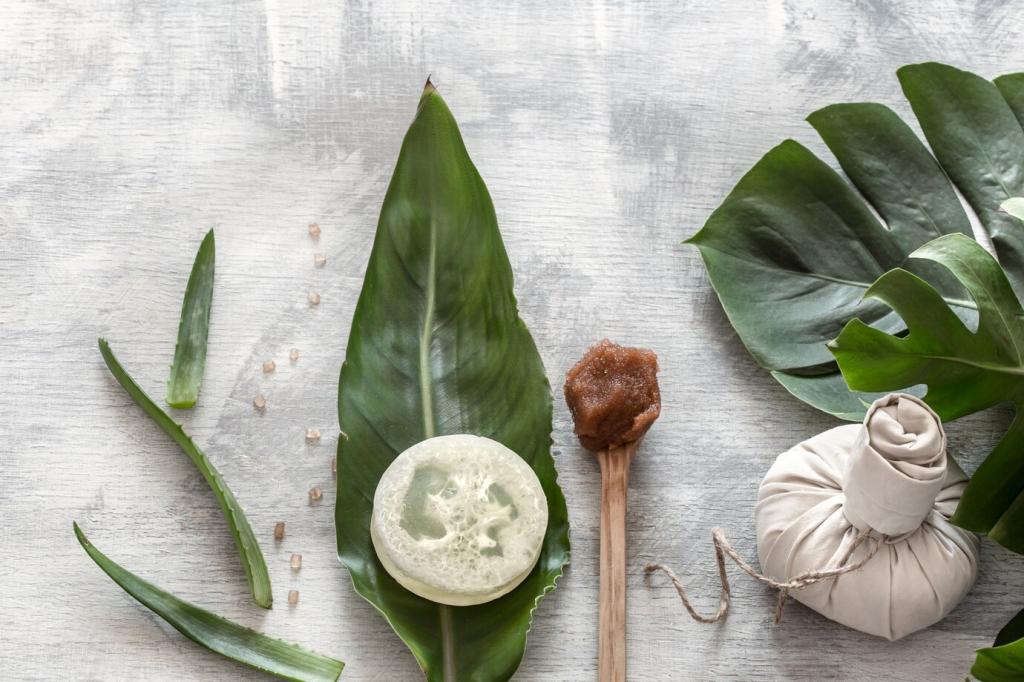
Organic Materials in Interior Design: Bring Nature Home
Today’s chosen theme: Organic Materials in Interior Design. Step into a calmer, healthier, and more soulful space where wood, stone, clay, and natural fibers invite you to breathe easier and live better.
Low-VOC finishes, solid woods, clay plasters, and natural textiles support better air quality and fewer irritants. Readers often tell us they sleep better once synthetic off-gassing is gone and surfaces finally smell like wood, not plastic.
Why Organic Materials Matter
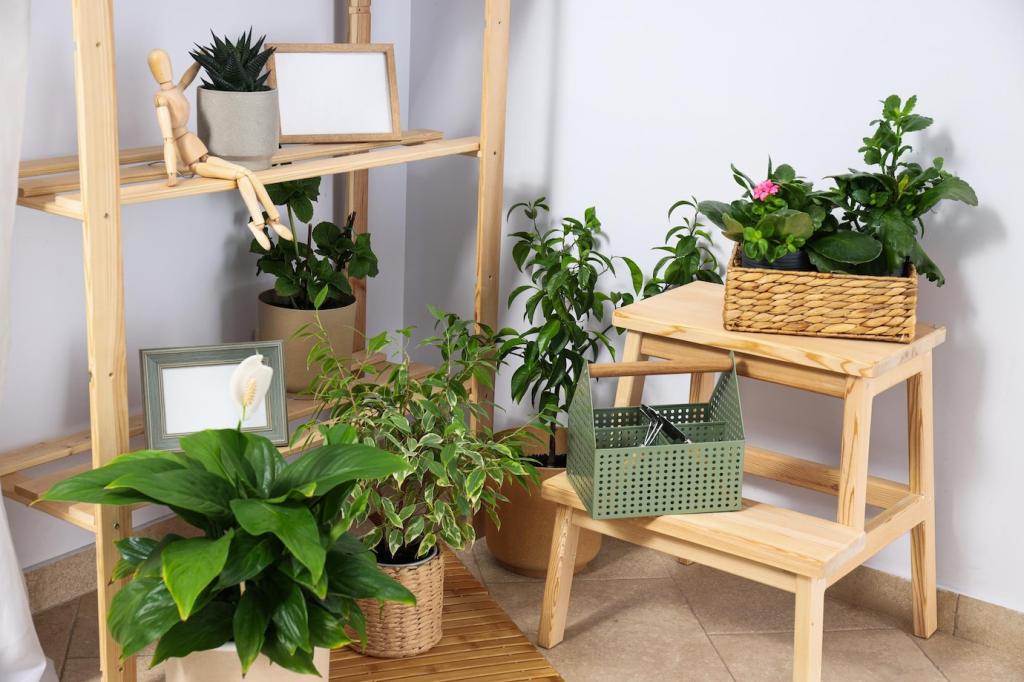
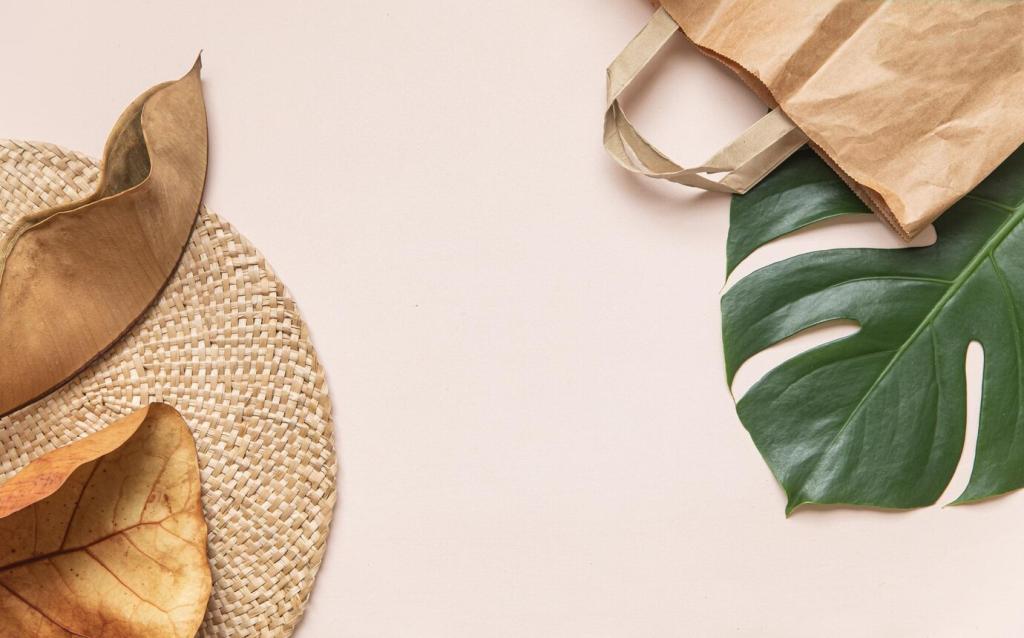
Wood, Stone, and Clay: The Essential Trio
Choose FSC or PEFC-certified oak, ash, or walnut, finished with natural oils. Tight, visible grain adds depth and ages handsomely. Share your favorite species, and subscribe for our guide to matching wood tones across open-plan spaces.
Wood, Stone, and Clay: The Essential Trio
Limestone reads calm and matte; soapstone feels velvety and resilient; marble veining becomes living art. Honed finishes reduce glare and invite touch. Ask us about sealing routines that respect patina instead of chasing a sterile shine.
Natural Textiles and Fibers for Touch and Tone
Wool, Linen, and Cotton in Harmony
Wool regulates temperature and resists crushing; linen breathes with elegant rumple; organic cotton adds softness. Mix weaves and weights to avoid flatness. Tell us your favorite blend, and we’ll share a stain-care cheat sheet next week.
Jute, Sisal, and Cork Underfoot
Jute and sisal bring earthy texture and natural color variation; cork adds springy comfort and acoustic calm. Use layered rugs to zone spaces gently. Subscribe for our rug sizing template to avoid the dreaded floating island look.
Dyes, Certifications, and Care
Look for GOTS-certified textiles and plant-based dyes that age with grace. Vacuum with a brush head and rotate rugs seasonally. Comment with tricky stains you’ve battled; our newsletter will compile reader-tested organic remedies.
Color, Texture, and Light the Biophilic Way
Pair smooth limewash with open-grain oak, coarse linen, and matte stone. Contrasts keep the eye interested without shouting. Share a photo of your most textural corner, and we might feature it in an upcoming inspiration roundup.
Color, Texture, and Light the Biophilic Way
Honed stone diffuses glare; clay walls scatter daylight into soft gradients; oiled wood deepens at night. Plan lighting to graze textures. Want our free lighting checklist for organic rooms? Drop a note and subscribe to receive it.
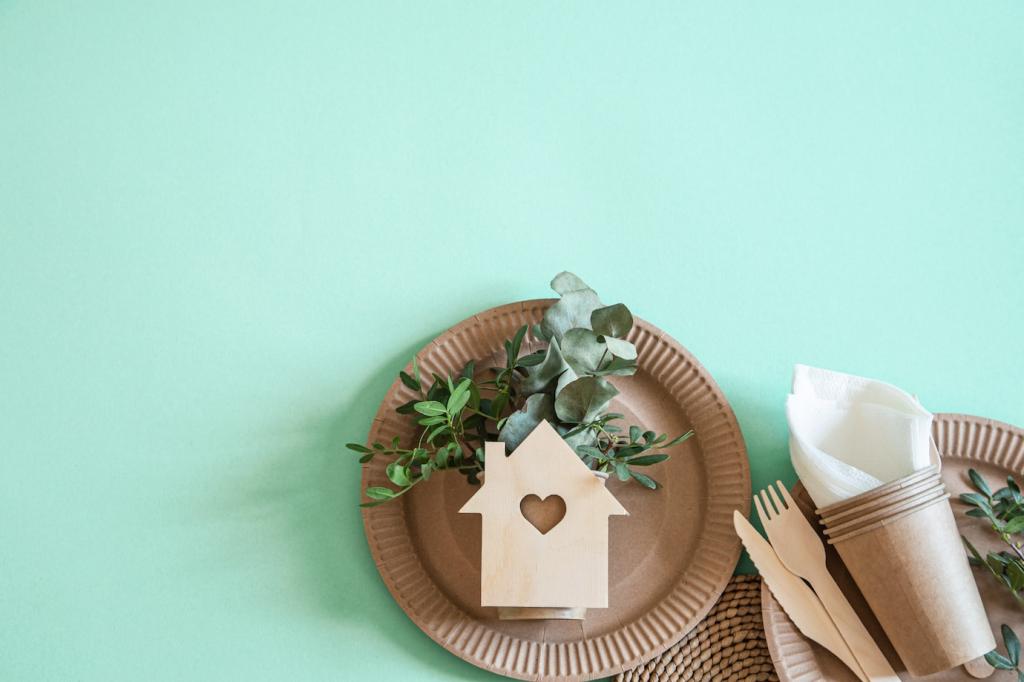

Sourcing Ethically and Locally
Prioritize FSC or PEFC wood, GOTS textiles, and third-party VOC testing for finishes. Certifications aren’t perfect, but they guide better choices. Ask for our printable checklist to bring on your next showroom visit.
Reclaimed timber adds history and saves lumber; local stonemasons and plasterers bring skill you can see in every edge. Share your city, and we’ll crowdsource trusted makers from our community for your area.
Use organic materials where touch and light matter most—floors, tabletops, headboards—then simplify elsewhere. Mix heirlooms with new basics. Comment with your budget, and we’ll propose a phased plan you can actually finish.
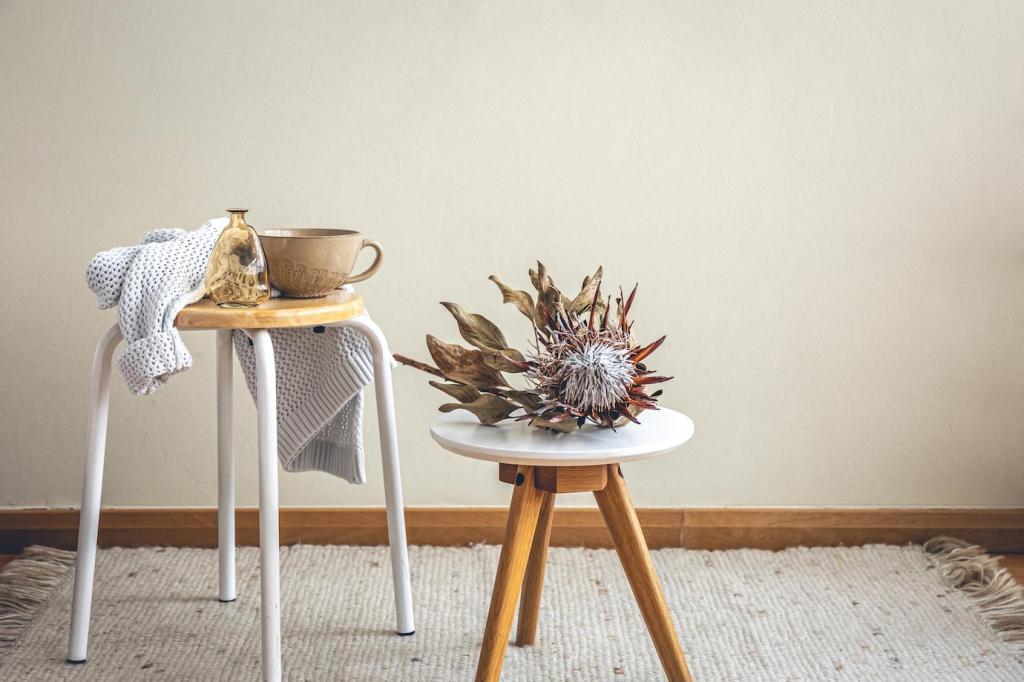
A Studio Apartment Finds Its Warmth
Maya replaced a glossy fiberboard table with a reclaimed elm slab and added a cork runner. Cooking suddenly felt like ritual, not routine. She wrote to say evenings were finally quiet enough for unhurried tea and sketching.
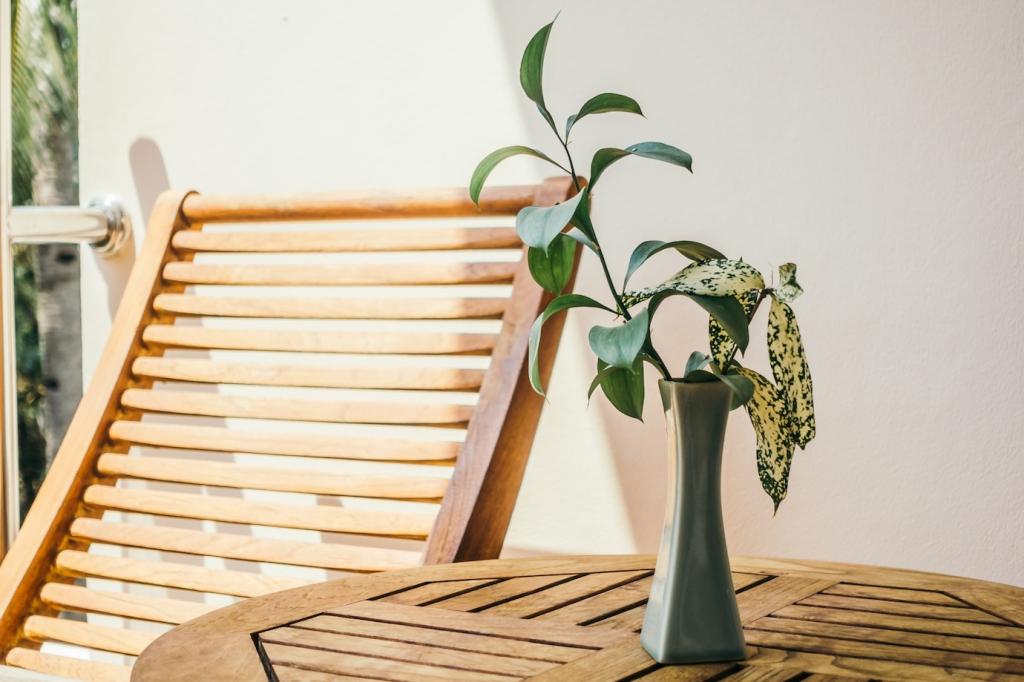
Country Kitchen, City Air
Jorge limewashed over old semi-gloss paint and laid wool runners to soften clatter. His allergy flare-ups eased, and weekend breakfasts lingered longer. He’s now mentoring neighbors who want breathable walls without losing cheerful color.

Your Turn to Share
What small organic swap changed your routine—a linen duvet, a soapstone board, a jute runner? Post your story or question below, and subscribe to see it featured with product links and practical how-to notes.
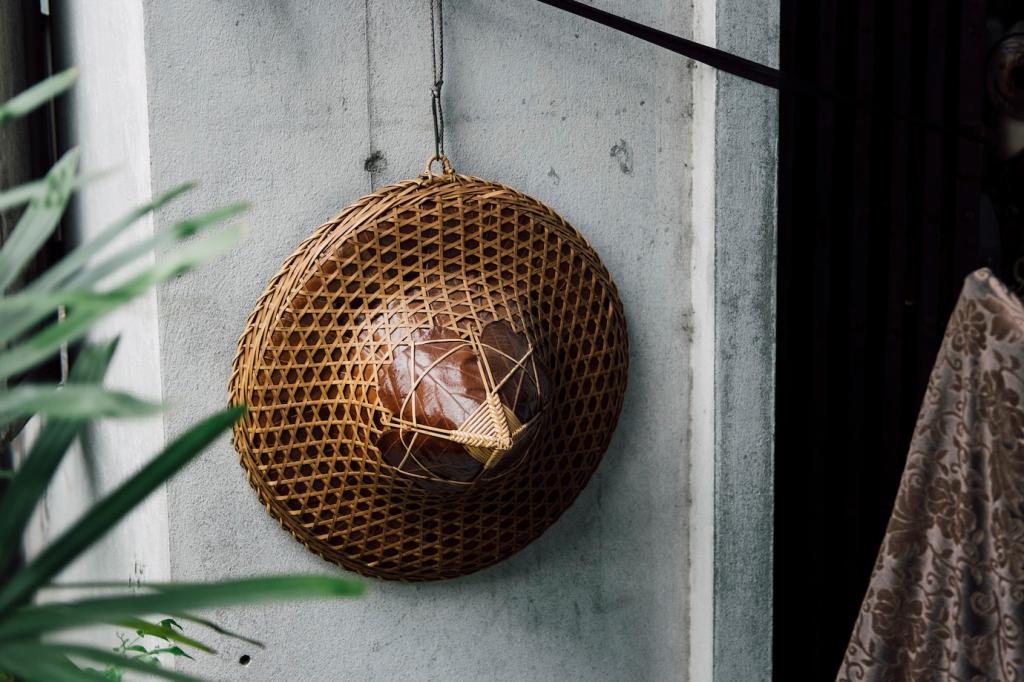
Beginner-Friendly Limewash Wall
Test two sample swatches, then layer thin, crisscross strokes for a clouded finish. Use a mineral primer on slick surfaces. Comment if you want our tool list and a playlist to keep the rhythm relaxed and steady.
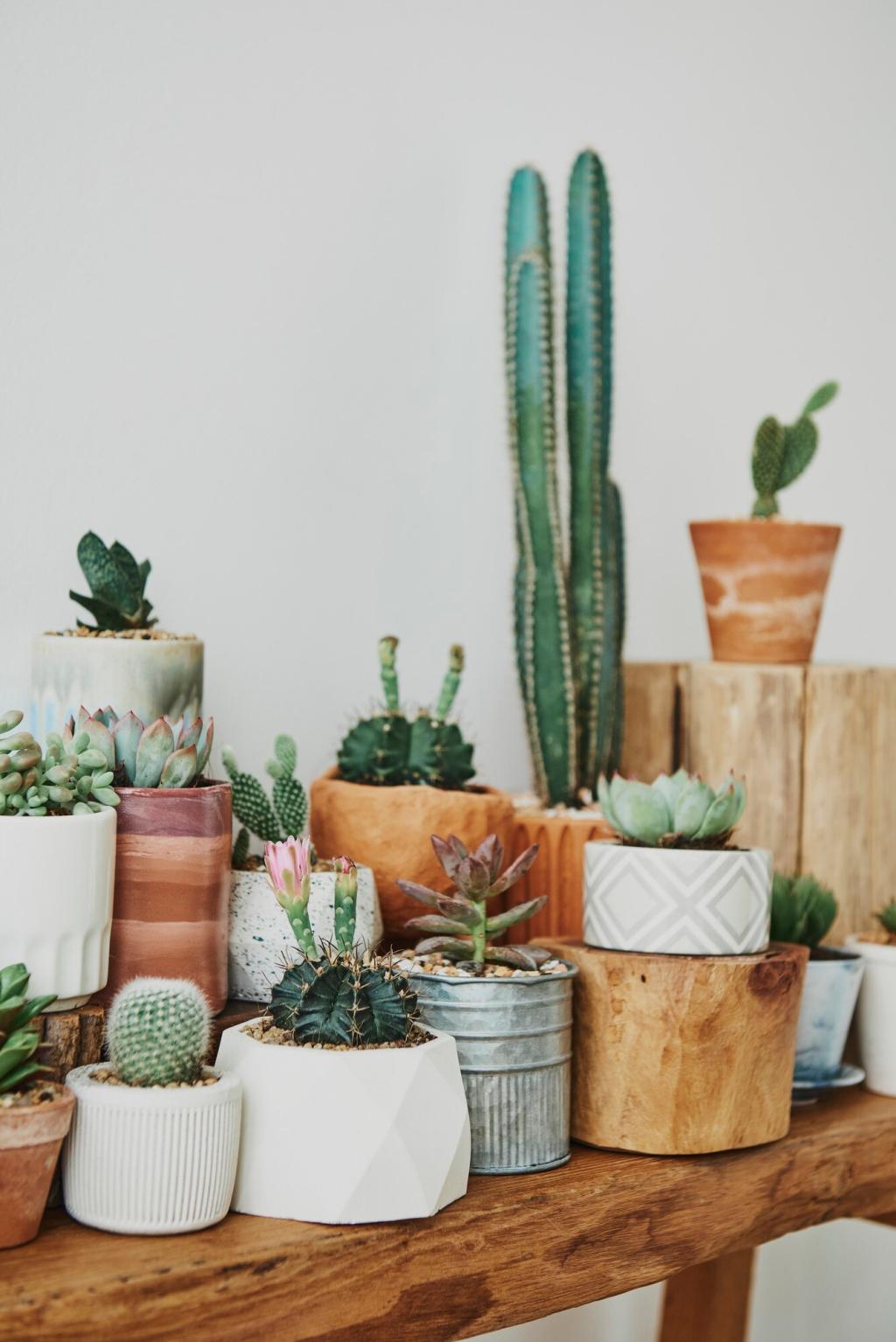
Upcycled Timber Bench
Turn a salvaged plank into a hallway bench with simple trestle legs. Finish with linseed oil and a touch of beeswax. Share your measurements, and we’ll send a cut list suited to your entryway or mudroom.
Care, Longevity, and Gentle Maintenance
Refresh oiled wood with a light scuff and recoat; use plant-based soap on floors to build a protective micro-layer. Ask for our seasonal calendar, and we’ll email reminders so care never becomes overwhelming.
